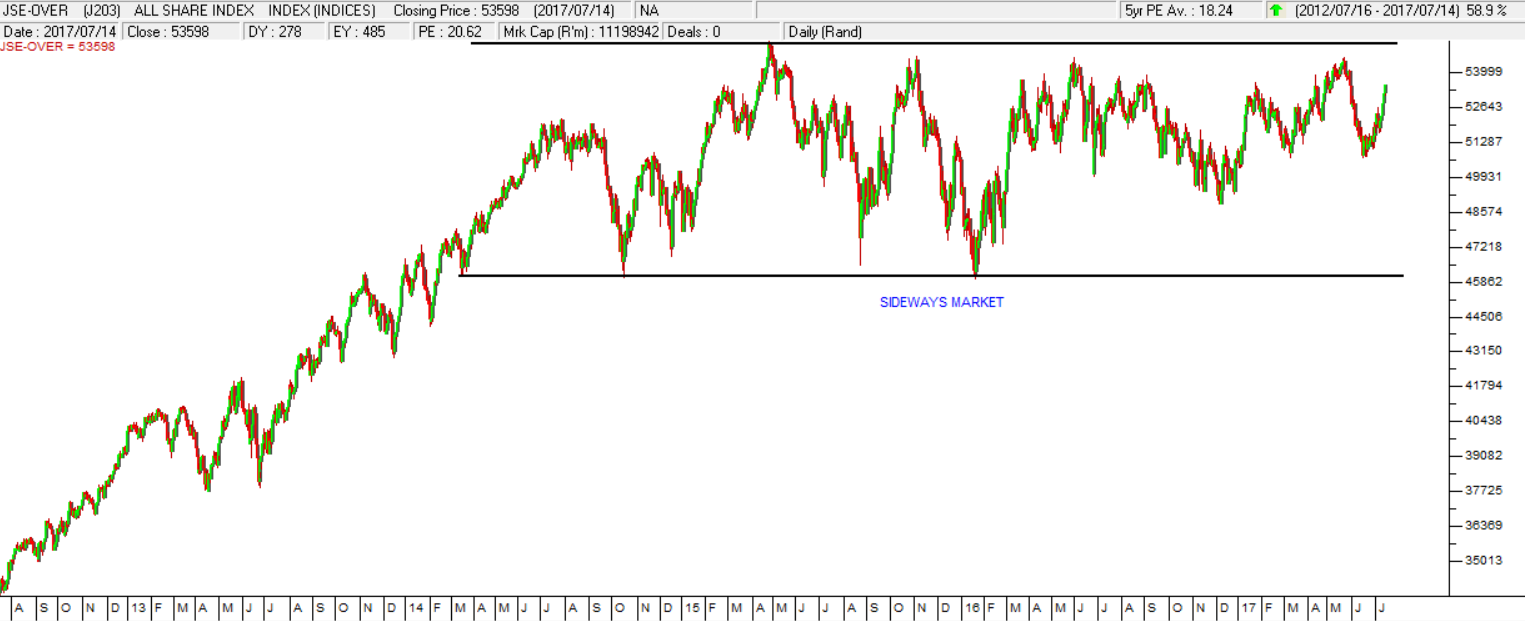The Disconnect
An interesting disconnect is going on in South Africa. On the one hand, you have economists who are almost universally negative, reducing their estimates of GDP growth and pointing to falling consumer confidence and lower production. On the other hand, you have rising share prices, which imply higher company profits in the future, and that implies improved consumer spending and better GDP growth.
One of them has to be wrong. Old Mutual economists recently reduced its growth forecast for 2017 from 1,2% to 0,8%, sighting weaker consumer confidence, pervasive legislative uncertainty, ratings downgrades and the IMF's recent highly negative report on our economy. At the same time and in the same week, investors pushed the JSE Overall index up dramatically taking it ever closer to its all-time record high. You may be tempted to ask if they are looking at the same economy. How can they have such diverse opinions about exactly the same thing? To understand this, you need to consider the difference between an economist who is making an academic assessment of what should happen based on tables of facts and figures, and an investor who is staking substantial quantities of hard cash on being right when others are wrong. Beyond some slight damage to their reputations, economists working for large companies like Old Mutual really stand to lose nothing if they are wrong. Yet it is the economists whose dire predictions make headlines. The opinion of the "smart money" is only visible in the movement of share prices, and then only to those who are looking. Mostly, share price movements do not make headlines, and yet they reflect the "smart money" consensus about what will happen next. And what exactly is it that the smart money is seeing that is making them so excited? They are seeing a ground-swell recovery, world-wide, which is inexorably gathering momentum. Beginning in America, the world economy is finally recovering convincingly from the 2008 confidence crisis which seriously threatened to cause a repeat of the Great Depression just a few years ago. The US economy is now generating more than 200 000 new jobs every month. The German economy is growing strongly and even Spain, which was one of the infamous PIGS just a short time ago, is growing at 3,2% per annum. China, while not growing as fast as it has in the past, appears to have engineered an economic "soft landing" and looks ready to resume its role of being the factory of the world. In short, the world is heading into a period of strong growth and that is being strongly discounted into share prices. The South African economy, despite its strenuous efforts to shoot itself in the foot, must inevitably be dragged along into this recovery. Our economy is just too insignificant on the world stage to do anything else. And that explains the extraordinary disconnect between what economists and investors are predicting. For the past three years, investors have listened to the economists and bought into their doom and gloom predictions but now, suddenly, they seem to be realising more and more that they may be missing out on a world-wide rush into equities. For three years our JSE Overall index has been moving sideways, but in the last two weeks it has shaken off the negativity and focused on what his happening on the world stage. 
JSE Overall Index July 2012 to July 2017 - Chart by ShareFriend Pro
Our market is about to follow Wall Street up to new record highs and the disconnect between what local economists are saying and what is about to happen represents a buying opportunity for private investors.
"Be greedy when others are fearful" - Warren Buffett
← Back to Articles